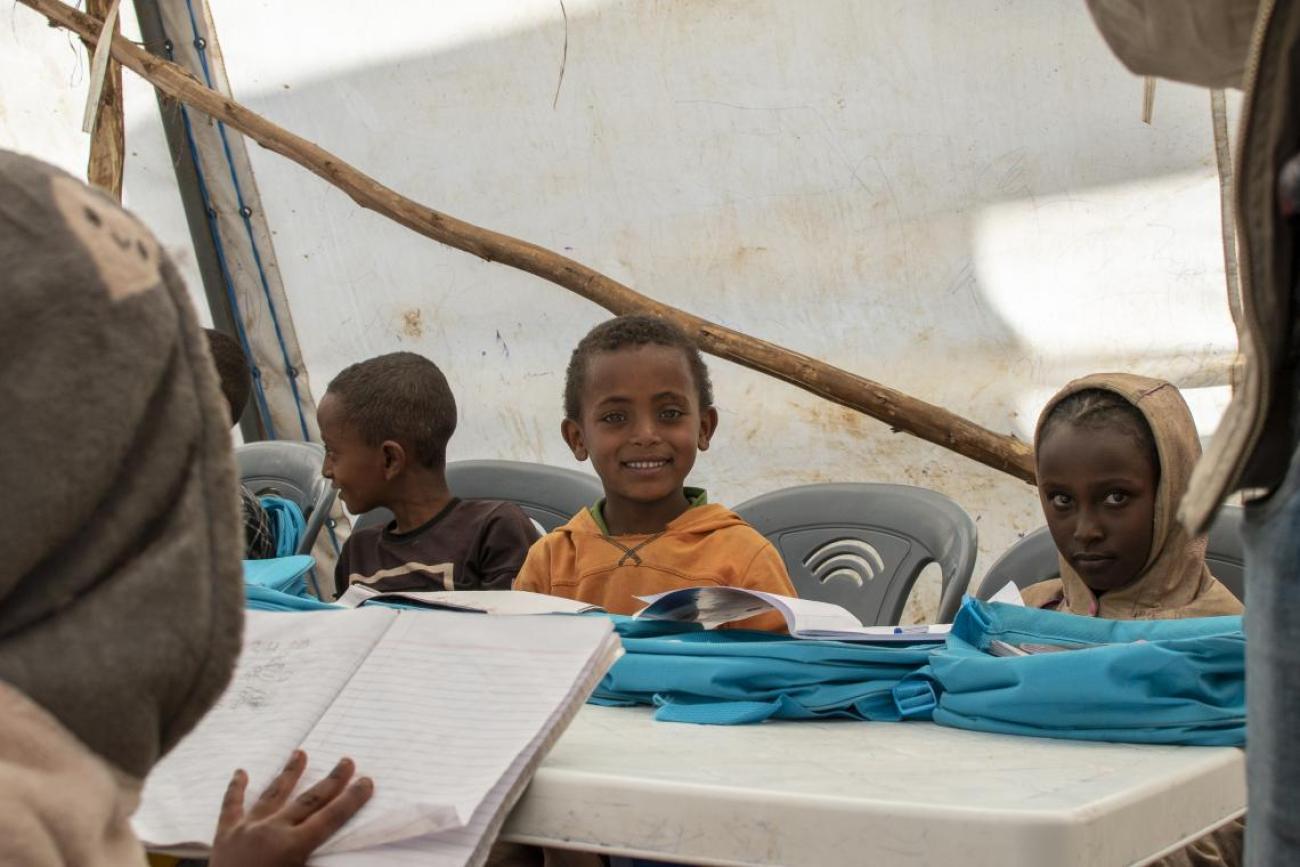Scaling up humanitarian support for children with disabilities and their families

UNICEF is expanding programming in IDP camps to provide services and support for children with disabilities and their families.
Thousands of people have fled ongoing conflict in Ethiopia’s Oromia region. Some of the displaced people have been settled in temporary camps in Debre Birhan that host more than 25,000 people.
When we visited Woyinshet camp, over 6,800 people were living in difficult conditions. “We don’t have any hope to return to our homes,” said one woman who has been living in the camp for nearly two years. Recent data shows that there are almost 300 people with disabilities in the camp.
UNICEF is on the ground providing education, water, sanitation and hygiene, health and child protection services for children in the camps and in the host community.
In Woyinshet camp for internally displaced persons, we joined a classroom in a tent where girls and boys sat attentively with their UNICEF backpacks and exercise books on the table. When introducing us and asking if the children know what UNICEF does, one boy proudly told us that UNICEF is an aid organization that provides school materials.
When asked what their hopes are for the future, children chimed in that they want to be a teacher or a doctor to help the sick. One girl said she loves that she can learn in the camp. Another girl said she wants peace so she and her family can go home.
To support children and their families to cope with the difficult situation they are in, UNICEF has deployed mobile teams to provide mental health and psychosocial support. The children told us they like to play football, skip rope, and play other games but space to play is limited in the camp. UNICEF is planning to use some of the empty tents as child-friendly spaces for children to play in a safe environment while their caregivers cook, collect firewood, or work.
More funding is needed to provide services for the most marginalized in the camp. All the classes are at full capacity, and teachers have no training to provide adequate learning support for children with disabilities. We met a young boy of 10 with a physical disability who wishes he could go to school and become a teacher. “I am able to be educated.”
There is also a need for cash top-ups for additional disability-related costs, social behaviour change interventions to address stigma against persons with disabilities, assistive devices, livelihoods programmes and data on the number and specific needs of persons with disabilities in the camps.
A 17-year-old boy who is missing an arm faces difficulties washing his clothes. He told us he was only able to finish grade 4. “I wish I had some form of livelihood so that I can be productive.”
A woman with a physical disability cannot rely on anyone else than her 12-year-old daughter for household chores like collecting water and firewood.
She needs crutches to move around, but no assistive devices are provided in the camp.
In addition to existing programming in the camps, UNICEF is working to collect data on the needs of persons with disabilities, piloting humanitarian cash assistance and providing livelihood programmes.
In emergencies, persons with disabilities continue to be the last ones to receive humanitarian assistance. With the support of donors and partners, UNICEF’s mission is to ensure humanitarian assistance is inclusive of and accessible to children with disabilities and their families.

